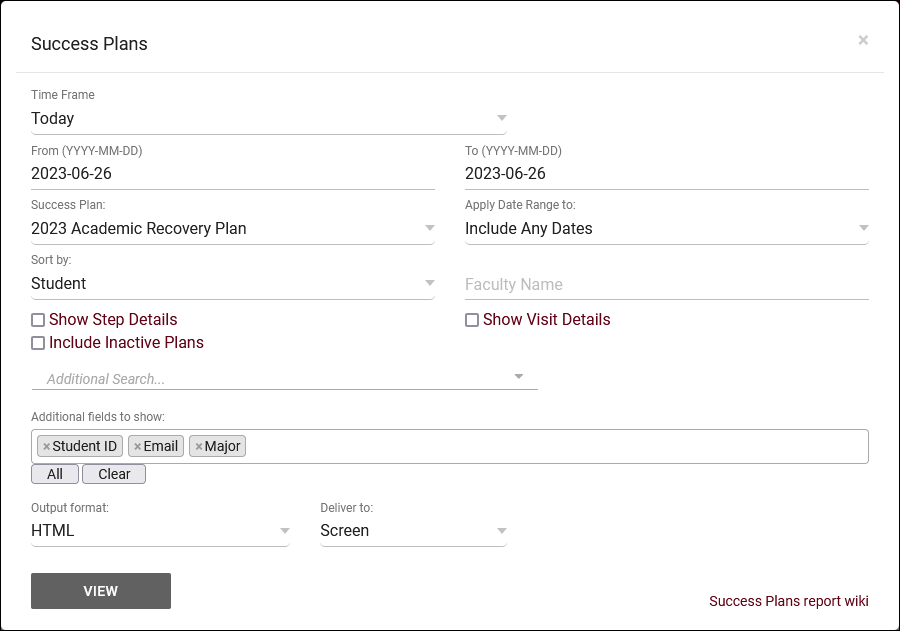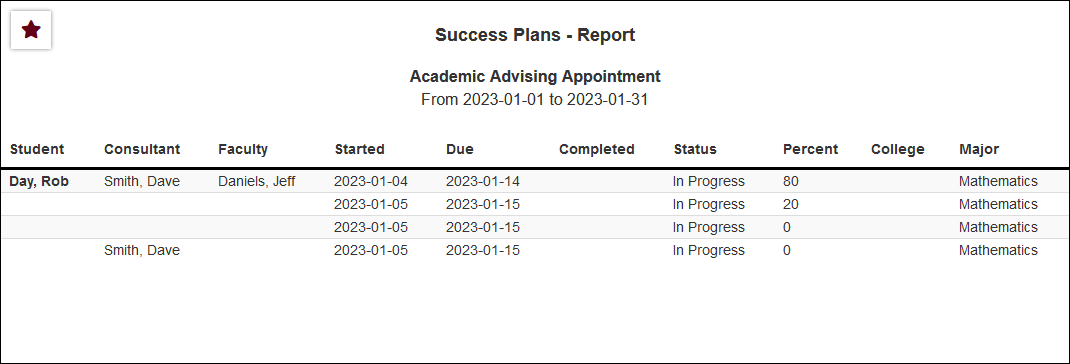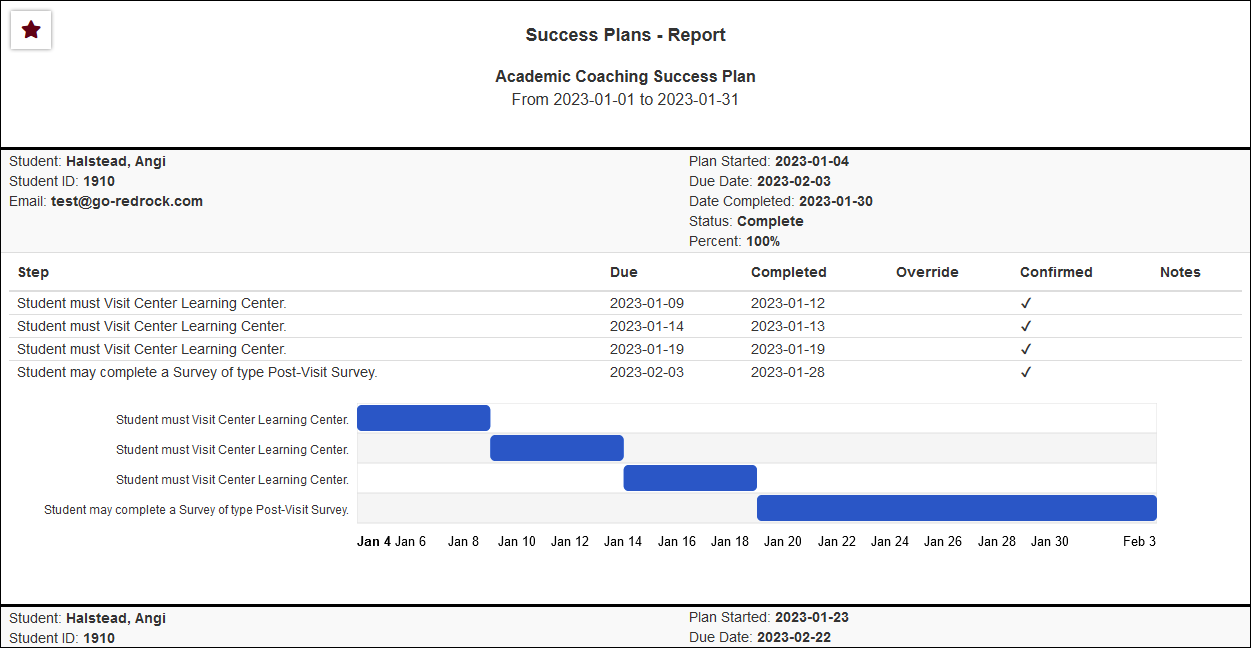TracCloud Report: Success Plans: Difference between revisions
From Redrock Wiki
No edit summary |
m Redrock moved page TracCloud Report: Success Plans to TracCloud Report: Success Plans |
(No difference)
| |
Revision as of 23:55, 22 November 2024
Career Center
Q2 Tables
Retention
SAGE
• Referrals by Student and Appointments/Visits
SurveyTrac
• Survey Response Rate Comparison
• Unanswered Staff/Faculty Surveys
Success Plans
Work Plans
Workshops
Success Plans
The Success Plans report found in Reports > Success Plans allows you to view a list of student success plans, along with their status, completion percentage, additional student information, and more.
- Time Frame
- The date range for the data in this report. Beyond entering a date range manually, you can also choose a preset date range (Today, This Month, This Semester, etc) from the dropdown list above.
- Success Plan
- Select the Success Plan type that you want to show results for.
- Apply Date Range to
- Choose what your selected date range is in reference to. Defaults to any matching date range.
- Sort by
- Choose how the selected data is sorted.
- Faculty Name
- Filter by assigned faculty name. Expected format is "Last, First".
- Show Step Details
- If enabled, student progress on individual steps and a visual timeline of step due dates will be shown.
- Show Visit Details
- If checked, the Subject, Reason, Consultant, and Center of the visit will be included in the results.
- Include Inactive Plans
- Inactive plans are hidden by default, this option allows you to include them in report results.
- Additional Search
- Filter your results by a selected field.
Use * as a wildcard (Subject: MAT*)
| as "or" (Major: Mathematics|Biology)
# as "Not" (Status: #Inactive)
&& as "And" (Major: #Mathematics&&#Biology)
blankornull as a keyword to find records where the field is blank (Reason: blankornull)
Multiple fields can be added to further narrow down your results.
- Filter your results by a selected field.
- Additional fields to show
- This can be used to add additional data fields to the report results. For example, you could use this to add a student's email address in a visit report.
- Output format
- Use HTML to view report data in your browser, or export this report to a CSV file (available for most reports). Some reports offer additional CSV options depending on if you want to include totals and/or data grouping in your export.
- Deliver to
- Display this report immediately in your browser ("Screen"), or send the report to a specified email address ("Email"). Multiple email addresses can be specified, use ; to separate them (example@example.edu;sample@example.edu).



